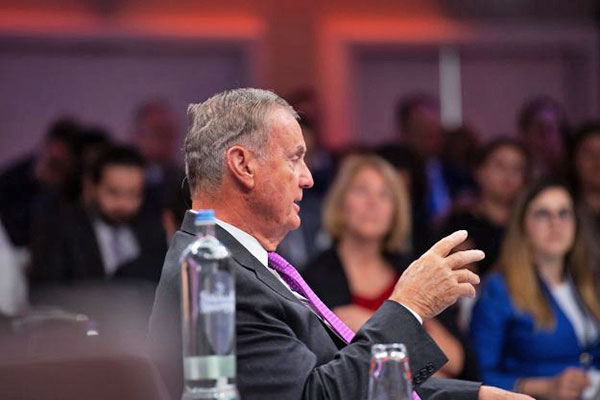|
from
StateScoop Website
(NATO /
Flickr) and retired Air Force Major General Robert Wheeler were both optimistic that the next wave of wireless technology
will be
the "safest"...
5G technology will be the backbone of smart cities ...as long as it's secured, retired generals say
...Jones, a retired Marine general and former NATO supreme allied commander who served as President Barack Obama's first national security adviser, said at a smart-cities conference hosted by the law firm Dentons.
But the new networks will only be as strong as their cyber-security, Jones said.
Specifically, Jones, who now runs a private consulting firm, said he focuses on inside threats, telling his clients to run more regular background checks on employees and to be wary of behavior that triggers major cyber-attacks, such as one in Atlanta this year that began when a city employee opened a phishing link in an email that unleashed a ransom-ware virus.
While most city computer networks or consumer-facing wireless networks aren't going to have the same layers of security as the National Security Council, Jones sounded an optimistic note about the technology.
Telecommunications
companies are starting to test 5G technology in a number of U.S.
cities, and some states, including Illinois, have adopted
legislation making it easier for wireless carriers to install the
small cells that will power eventual 5G networks designed to support
the next generation of smartphones and other Internet-connected
devices.
As an example Wheeler named Volvo's XC90 sport-utility vehicle, which is often used by companies developing autonomous vehicles.
The cars, he noted, are manufactured with 17 motion sensors that help drivers navigate traffic jams and tight parking jobs. But on an autonomous vehicle, Wheeler said the latency on a 4G network is too high for those sensors to prevent a crash in time.
(The Volvo involved in a
March collision in which an Uber autonomous vehicle fatally struck a
pedestrian in Arizona had had its factory-installed safety settings
deactivated.)
The next generation networks' latency will also be low enough to make self-driving cars respond quickly enough to prevent accidents, Wheeler said.
But autonomous vehicles and all those other new devices that connect to the Internet will have to be safeguarded against cyber-threats.
Like Jones, Wheeler was optimistic, though unspecific, that 5G will have better cyber-security than its predecessors.
|


